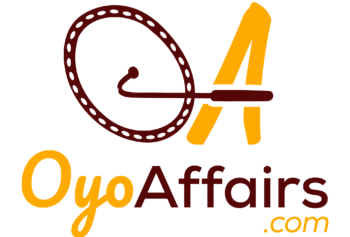Is it true that Taye Currency, the Fuji maestro, has floated a new radio station in Ibadan? Whether rumour or reality, it highlights an interesting trend, that radio stations in Ibadan are multiplying faster than interest after loan. Yes, once upon a time, tuning the FM dial in Ibadan meant a few clear options. Today, however, it’s like spinning a wheel in a media casino. With over 50 stations, and more whispering inIbadans’ radio framework is bursting at the seams. But the real question is, are we getting more noise than news, more vibes than value?
Obviously, before 2007, radio in Ibadan was largely synonymous with government-owned stations. Oluyole FM (formerly Radio O.Y.O. 2) and Premier FM 93.5 (commissioned in 2001) were the leading and regular voices. That changed in 2007, when Splash 105.5 FM hit the airwaves as the first private radio station in the cit and then the media revolution commenced. Splash FM ’s success decoded the market, launching the way for stations like Space FM, the country’s first tri-lingual station and many more. From Agidigbo to Fresh FM, 32 FM, Impact Business Radio, the airwaves became a playground of possibility, positioning Ibadan as the unofficial radio capital of Nigeria.
Hence, one might love to ask, why the Influx? why Ibadan? Experts and stakeholders have highlighted to several underlying factors. As one of the most populated cities in Nigeria, Ibadan offers an open and various potential audience. Its contiguity to Lagos allows radio businesses to draw into the commercial pulse of Nigeria’s media heart while aiding from significantly cheaper operating costs. Yes, as an academic and cultural centre, the city is home to the University of Ibadan, polytechnics, colleges, research institutes, and a large population rich in discourse and culture. Even more, it is said that licensing is reportedly easier and cheaper to obtain in Oyo State compared to media-saturated areas like Lagos and Abuja. Add to that the Ibadan’s relatively low cost of living and tax burden, and it becomes clear why the media market has exploded.
Truth be told, the accrual of stations has undeniably created opportunities. Hundreds of young and promising broadcasters, producers, marketers, and sound engineers have found employment. Even in theory, the increase has allowed for more diverse programming, covering religion, politics, sports, youth issues, and local interests. For entrepreneurs, Radio airtime has even become accessible to small businesses, allowing them to advertise products and services affordably, while many stations promotes grassroots community engagement through localised programming and culturally relevant shows.
However, beneath the incitement lies a growing problem. Nearly 45 out of 50 Ibadan stations sound eerily alike, snug in a drab loop of Afrobeats playlists, loud shout-out segments, and that surface-level gossip. Many copy the structure of successful stations, however without innovation or differentiation. It’s content copying at its peak.
Also, economic sustainability is another challenge. Several stations, Beat FM 97.9, Naija FM 102.7, King 103.9 FM, and Correct FM 99.5 among them have already shut down, weighed down by high operational costs and very low revenue. Transmission instability, ownership tussles, and a shrinking advertising market have driven others like Radio O-Y-O (AM), Thrill FM 103.5, Inspiration 100.5 FM, and Space 90.1 FM off the air so fast. Yes, as stations multiply, professionalism often bleed. There’s little room for quality control or necessary training. Many maneuver with underpaid staff and limited resources, relying almost entirely on advertising for revenue, despite the fact that most major brands still direct their ad budgets through Lagos, not Ibadan. How interesting? In a disturbing economy, this overreliance has left many stations financially disabled.
Meanwhile, critics argue that the radio boom may not be maintainable in its current form. While Ibadan’s population may condone the sheer volume of stations, Ibadan city’s economy simply cannot support all of them through advertising alone. Some insiders even point out that many stations weren’t even created for profit, but for status, philanthropy, religious influence, or political clout. Isn’t that intriguing? Again, this also raises issues about long-term viability. Meanwhile, the National Broadcasting Commission (NBC) is being accused of liberally giving out frequencies without demanding detailed sustainability or strategies. This, critics say, is a major reason why many radio stations sound coequal with one another.
So, what’s missing? despite Ibadan’s rich political tradition and the people’s deep interest in public and community affairs, only a handful of stations host serious and engaging political programming. That’s a glaring missed opportunity in a city that once birthed the country’s most vocal intellectual groups. Equally scarce are shows that identify contemporary needs, such as youth-focused educational content, bilingual sports analysis that speaks to Ibadan’s multilingual audience, tech and business-focused programs for the city’s growing entrepreneurial class, and conversations around mental health, gender equity, or civic education and more.
Hence, to move forward, experts suggest a deliberate reset. Radio stations must diversify their content, not just more music and gist , but more civic education, serious talk shows, regular investigative reporting, and youth engagement. Innovation in storytelling, digital integration, and brand identity will be so consequential to stand out. Even more, collaboration could also help. Radio stations can share infrastructure, like studios, power supply, or admin resources to reduce costs. Unnecessary competition won’t lead to anywhere. The Federal Government, through the NBC must also play its part, not just licensing new stations, but reviewing for originality, viability, and public interest. And finally, revenue models must change. Beyond ad slots, stations can check out branded podcasts, training academies, community-driven events, and digital monetisation. That would go a long way for survival.
Now, Ibadan’s radio sector is seriously at a turning point. The eruption in numbers has democratised the airwaves but watered their quality. Hence, without innovation, creativity, structure, and purpose, many of these radio stations will return to the dust, not by regulatory order, but by irrelevance and bankruptcy. Yet, hope remains. The passion is there. The audience is always eager. What’s needed now is a courageous shift towards intentional creativity, tactical thinking, and genuine community value. Let Ibadan radio stations find value in quality over quantity, before the city’s rich media legacy is drowned in static and sameness.
Ogungbile Emmanuel Oludotun writes for Oyo Affairs

